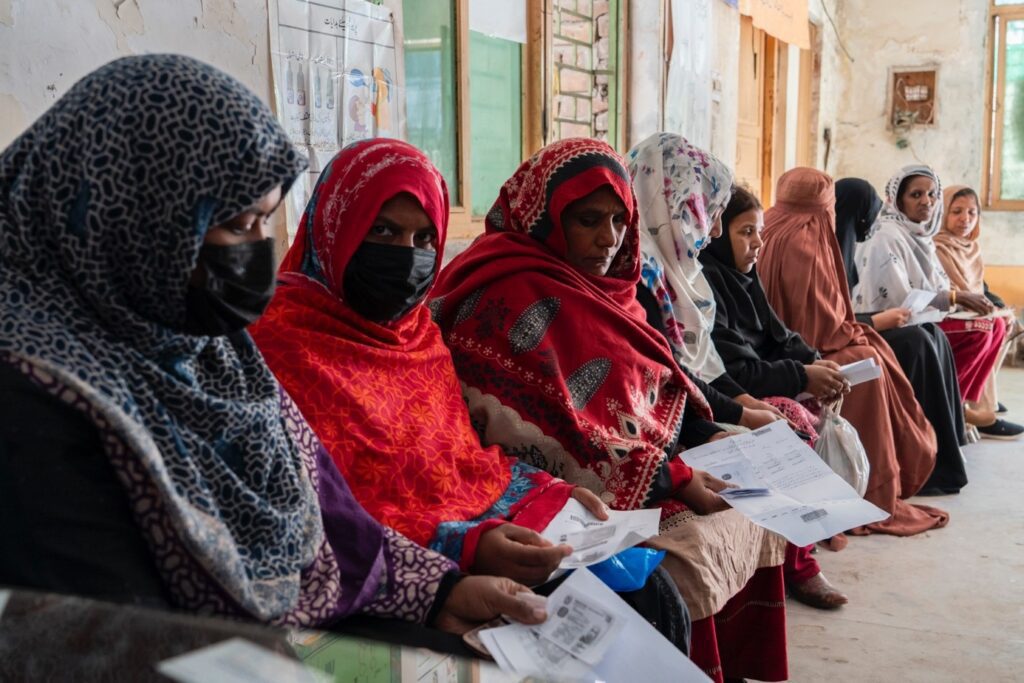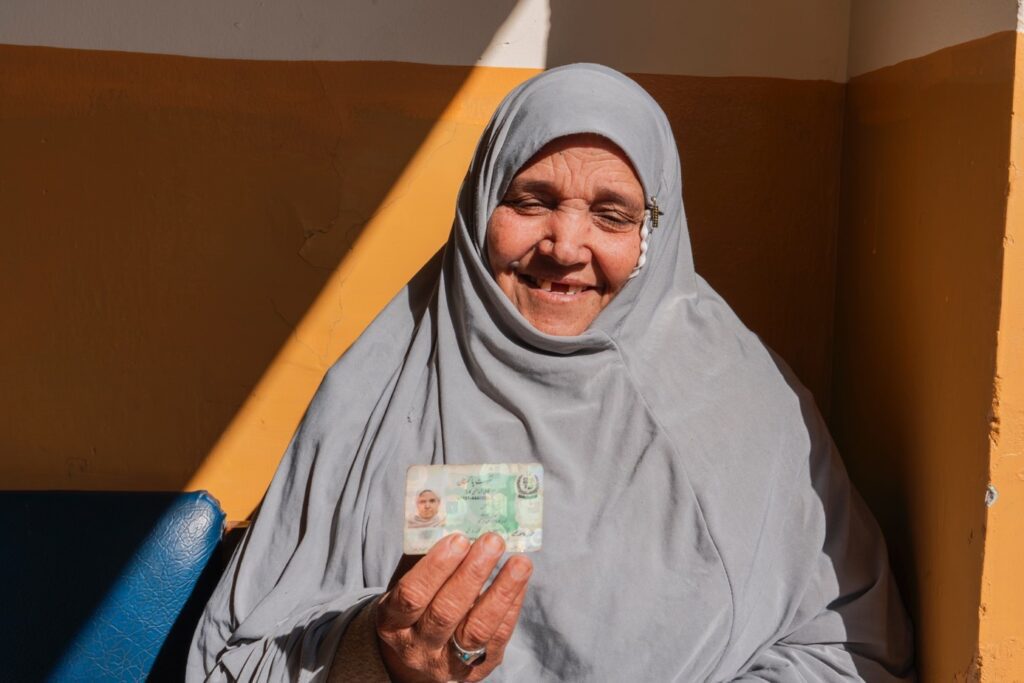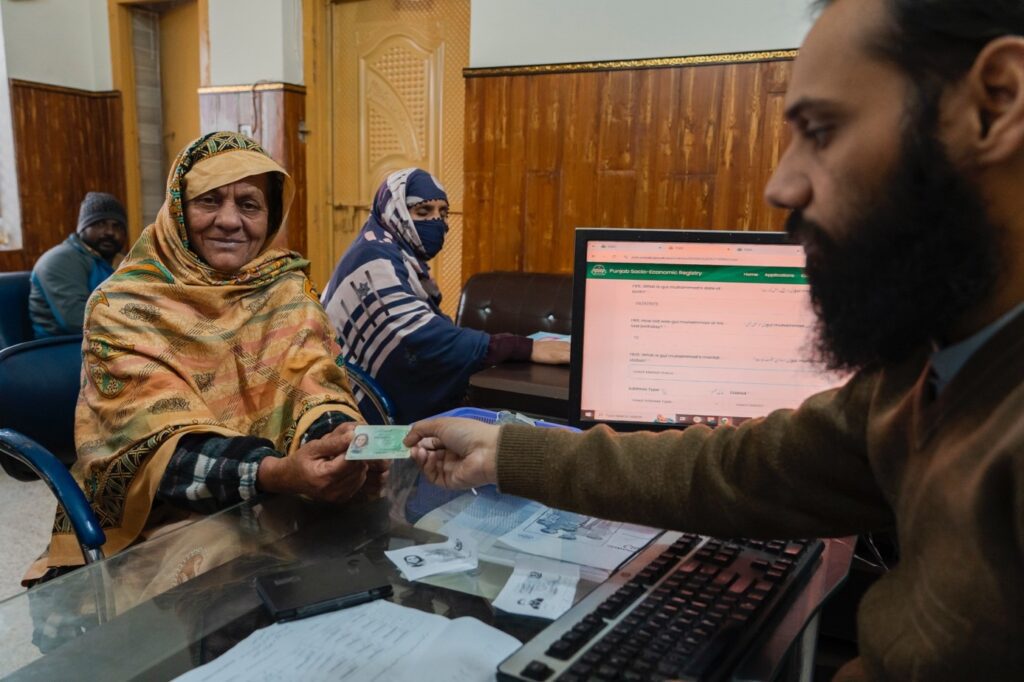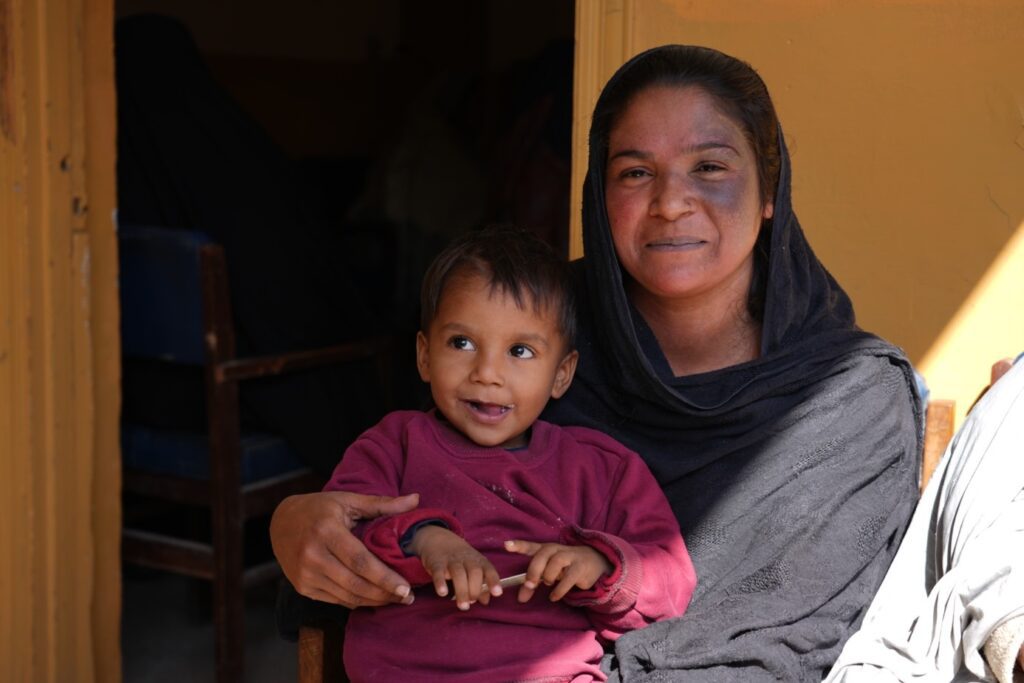
Punjab has set a new benchmark in its commitment to social protection, launching a groundbreaking initiative that promises to transform lives across the province. With the support of the Sub-National Governance (SNG) Programme, the government has established the Punjab Socio-Economic Registry (PSER), the first provincial database to target assistance to the people who need it most, when they need it most.
Delivering social protection: A pressing need for Punjab
Punjab is Pakistan’s most populous province, home to over 110 million people. Despite Punjab’s economic strength, poverty remains a persistent challenge. Vulnerable communities, particularly in rural areas, face limited access to education, healthcare, and employment opportunities. For these families, even minor economic shocks, such as a medical emergency or loss of income, can push them deeper into poverty. Major shocks, such as the Covid pandemic, have devastating impact on households living just above the poverty line.
Addressing poverty through social protection is essential for the province’s socio-economic stability. Ensuring that vulnerable populations have access to assistance can break the cycle of poverty, empower communities, and protect them from climate-induced disaster and other external shocks.

A wake-up call: Turning a crisis into opportunity
COVID-19 exposed a stark reality – Punjab was unable to deliver social protection due to outdated systems and data gaps. The National Socio-Economic Registry (NSER), developed by the Benazir Income Support Programme (BISP), proved inadequate for the task. It contained incomplete data and was challenging to access due to institutional and procedural complexities. These issues resulted in serious challenges, excluding 25 million people, or 20% of Punjab’s population, from social protection.
The 18th Amendment identifies social protection as the responsibility of provincial governments. With support from SNG, Punjab is building a social protection system based on the PSER – a new socio-economic database tailored to Punjab’s needs – with the Punjab Social Protection Authority (PSPA) providing the institutional framework and expertise needed to operationalise this ambitious initiative.

Building a system that adapts to people’s realities
Designed to be agile and inclusive, the PSER allows households to register, and update their details whenever their circumstances change. Since poverty is a dynamic process, this feature ensures no one slips through the cracks. The system improves targeting by ensuring that funds are directed to those that are most in need.
While the NSER relies on self-reported data, the PSER cross-checks this with information obtained other administrative databases, including those covering land, property and vehicle ownership. This is used to estimate household poverty vulnerability, to ensure the most vulnerable citizens are prioritised for social assistance.
In 2024, 5,000 registration centres were set up across the province, complemented by an easy-to-use online portal and a concerted registration effort across government agencies. To date, almost 7 million families, comprising over 35 million individuals, have registered, providing the government with a wealth of up-to-date data.
PSPA has agreed a data-sharing arrangement with BISP, to strengthen the quality of data held by the PSER. Through this partnership, Punjab can access national (NSER) data while also enriching the data with its own updates. In exchange, Punjab is sharing PSER data with BISP, improving accuracy at the federal level. The result is a robust, hybrid system that reduces errors and sharpens targeting.

A promise of transformative impact
The PSER is a transformative initiative, revolutionising social protection in the province. It is enhancing the targeting accuracy of all of Punjab’s programmes, such as the Bahiimat Bazurg programme of support for the elderly, and the Himmat card which supports persons with disabilities. In 2025, the registry is also being used to distribute Ramzan packages, ensuring that support reaches people in need during the holy month.
Fatima, a forty-five-year-old resident of Rawalpindi, hopes this initiative will make a difference: “We had registered for BISP but never received anything. My husband and I aren’t educated so we can’t earn much. He works as a motorcycle courier. Some days he makes 500 rupees, and some days nothing. We have no children to support us, and we need to pay rent, which is very expensive. So, we are really struggling financially. God willing, we will receive help through this programme”.
Mr Ali Shahzad, CEO of the PSPA, is confident this initiative will have wide-ranging impact: “Social protection is only as effective as the data behind it. Punjab’s future is data-driven and people-centered. The PSER is more than just a database – it is a commitment to fairness, efficiency, and dignity for all citizens. By improving targeting and expanding family-based coverage, we are ensuring that resources reach those who need them the most”.

A brighter future for Punjab’s most vulnerable
As Punjab takes full ownership of its social protection mandate, the PSER stands as a beacon of innovation and hope. This pioneering system isn’t just a tool; it is a testament to the province’s resolve to leave no one behind.
By embracing cutting-edge solutions and putting people at the centre of its policies, Punjab is building a future where every citizen has the opportunity to thrive. It also provides an example for other provinces to follow, paving the way for social protection to effectively reach all vulnerable households throughout the country.


